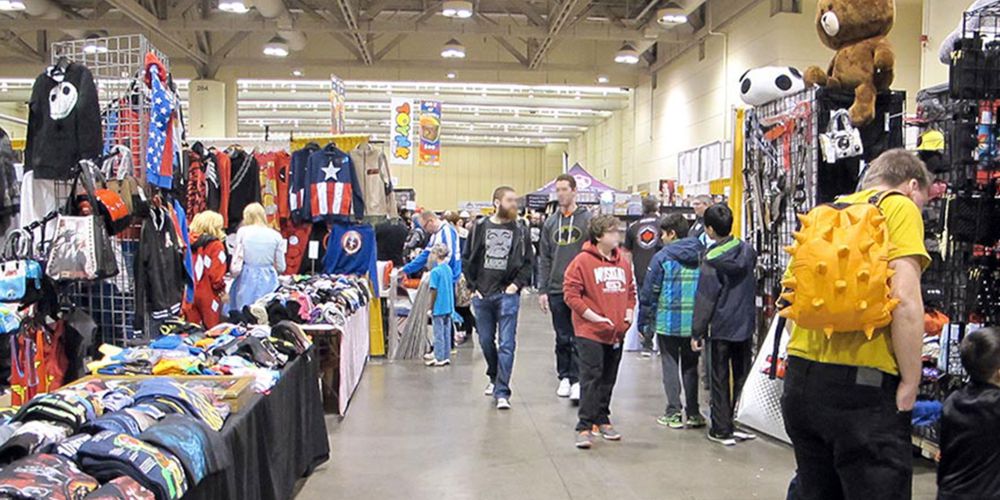So here we are, back with another article on convention prepping. Are you surprised? I know I'm not. It's a complicated subject, and if this is your first time putting on a show there's a lot you need to take in.
In our first article we talked about how to prep for Artist Alley and the legwork that you need to do prior to the show itself. We also talked about some eventualities you need to prepare for.
But what about the day of the event? How do you boost your sales, and what are some of the roadblocks you might encounter? Here are five things to keep in mind when selling your art in Artist Alley.
1. Split Your Table (And Costs) With Another Artist
One way to keep your costs down and your profit margin up is to split your table with another artist—if the convention allows for it. When you split your table it usually means that the paperwork is under one person's name, but the table comes with two chairs and two badges. You split the booth space equally.
Table-splitting is a good option for people who are just starting out, especially if you don't have a lot of products to display. It also helps to have another artist there to help you watch your stuff when you have to get up and stretch your legs. That way your products and cash will not be left unattended.
Above all, make sure the person you're splitting with is someone you trust, or at least know well. There's nothing worse than splitting the table with another artist only for them to leave you high and dry.
2. Your Table Position Can Affect Your Sales
There's nothing you can do about this. Okay, almost nothing, but it's true that where you're located in Artist Alley—and how much foot traffic it gets—can affect your sales.
You can't change your spot, as table space is usually done by lottery. Sometimes you can get a premium booth if you're willing to pay extra, but not all conventions have this as an option.
The best thing you can do in situations like this is to make sure everything on your table is up to spec, and to keep location in mind as a factor for your ability to move merchandise.
3. The Weather Can Affect Your Sales
I know. Shocking, right? You'd think a big convention that people fly in for would not be affected by the weather, and for the really big shows this is generally true. But you probably won't be working big events in the beginning, and if your convention is a local one—where most people are from the area, and they're paying $5 to drop in—then the weather can drop your sales.
True story: years ago I had a table at a local convention devoted to indie comics. They decided to hold the show on November 1st—the day after Halloween when everyone was hung over from a night of partying—and the weather was terrible. It rained, and rained, and rained.
Then it snowed. Sales were bad.
You can't control the weather, even less than you can control your table. So once again keep this in mind for your bottom line and budget accordingly.
4. Having a Good Display Is Crucial
Fortunately there are ways to bolster your sales even when it looks like everything is working against you. One of those ways is through a good display.
How you show your product matters, and when you're first starting out a good display is a good investment. Think about what you want it to look like. Brainstorm ways to do it cheaply, and make the overall "look" of it part of your brand.
Keep in mind that crowds are thick at conventions, especially in Artist Alley. Make it easy to see stuff from a distance.
Note: It will be hard to see your products if they are laid out flat on a table, so use height to your advantage. Most conventions have health and safety standards telling you how high your displays can be, but tiered book racks that sit on tables usually fall within limits.
5. Promote Your Work Online
Seriously, let other people know that you will be going to the convention.
Yes, if you're working a local event where people are just dropping in, chances are they're window-shopping. But if you're working a bigger show, this can and does matter.
If you have a large online following, some of those followers might be living in the city where you will be visiting. If they see you hyping your table—and they're already going to the show—they might stop by to check your stuff out. They might even buy a few products.
The Show Must Go On
None of these steps are fool-proof, nor will they guarantee that your first show will be a success.
Everything could go great—even better than expected. But events can also occur beyond your control that might turn the entire convention into a marketing disaster. That said, there's always some risk involved with starting a new venture. So long as you prepare for that risk you'll be in good hands.
